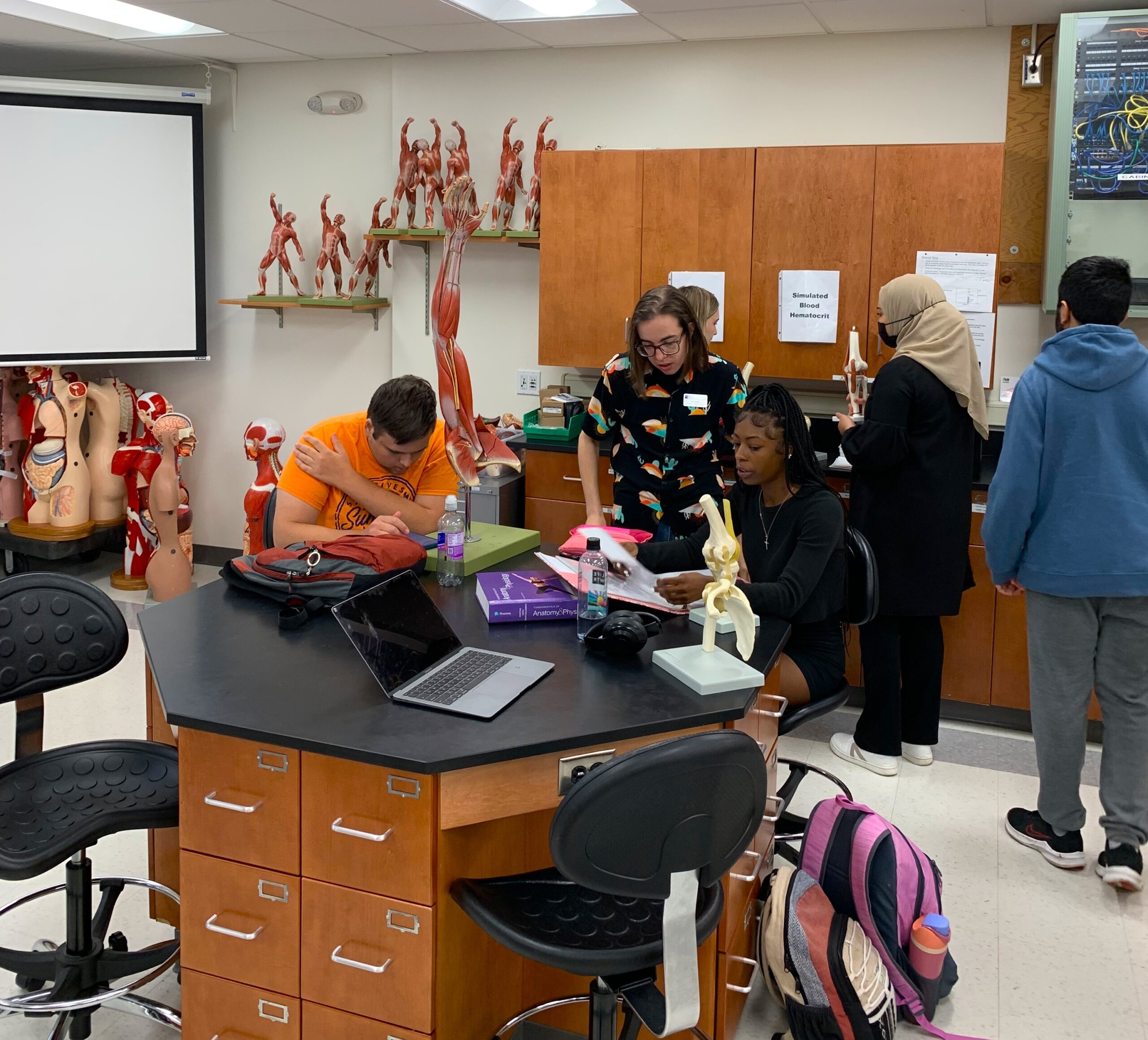Layoff: Biggest concern is ‘for the students’
Joseph Douglas
– Editor-in-Chief –
Matt Venable, STLCC-Meramec student, overheard a discussion he was never supposed to hear.
The ACCESS office’s Adaptive Technology Specialist Sue Kelmer, who has trained ACCESS students to use adaptive technologies for the past 10.5 years, will be laid off with no definitive plans on how the services she provides will be replaced.
“The way I found out about it was kind of secondhand. I happened to be in the right place at the right time when somebody was discussing it and I’ve asked lots of questions and I’ve gotten the responses of, ‘How do you know that?’ and ‘We don’t have a plan. There is no plan in place.’”
In February, STLCC announced 47 other layoffs throughout the district. This motion is part of a reorganization effort to allocate more money toward developmental education.
“[Students] have been good about talking to me about stuff,” Kelmer said. “‘Who do I talk to?’ ‘Where do I go?’ ‘What’s the information?’And I’ve given them all of that. Nobody from the campus level has come to talk to me at all about what they’re going to do… I imagine at some point they will.”
Ever since the discovery, Venable said he’s been asking other students if they knew about Kelmer, but no one was ever told.
“I’m just trying to get the word out because this is dramatically going to affect me and a lot of other students,” Venable said. “A lot of the access students don’t really know because it hasn’t been announced to anybody.”
According to Linda Nissenbaum, manager of the ACCESS office, approximately 550 students use the ACCESS office every semester. The center is responsible for helping students with disabilities overcome obstacles to their education with programs that aid students with reading, visual, attention, and compositional impairments.
“I was quite shocked because I had no idea this was going to take place,” Nissenbaum said.
Venable, who has reading and writing handicaps, said he uses the reading and writing programs at least four times per week. He said it takes him two to three weeks to read a chapter, but with the assistive technology, he’s able to read as well as everyone else.
When the programs malfunction, he said Kelmer is always there to fix the problem.
“There’ve been many times where I’ve been taking a test and one of the programs stops responding or something crazy… So immediately while she was proctoring the test, I’d come out of the cubicle and say, ‘Susan, it’s being stupid,’ and she’ll be able to get it back to a functioning order so I can finish the test.”
In addition to working for TESS, Kelmer currently has responsibilities to the ACCESS center and Meramec’s Library.
“Working with the students, knowing what they need and being able to provide that all these years, I want to make sure that is not interrupted for them as much as possible,” Kelmer said.
Emilie Burke, president of the Focus on Ability Club and a student worker at the library, said she originally heard the news at one of her club meetings.
“I heard and I just couldn’t believe it,” Burke said. “It’s really hard to see her go… It will affect the students to see her leave. It’ll affect me. She was a really nice person to get to know.”
While there are no exact plans yet on who will take over Kelmer’s services, George Wasson, vice president of academic affairs, said there is no intention of eliminating the service.
“I understand how the students feel about there being a change, but we will be providing these services,” Wasson said. “I’d like to put people’s minds at rest and tell them we will.”
In the meantime, Vice Chancellor for TESS Craig Klimczak, M.D., said he will be working with college officials to fill in the service gaps.
“I am deeply concerned for everyone who is impacted by these fiscal decisions. In no way is the layoff decision a reflection on anyone’s performance or assignments,” Klimczak said. According to Klimczak, the TESS layoffs were determined by seniority, affecting the newest employees first.
In February 2010, the board of trustees approved the support of several new technology solutions. In order to make up for the increased services TESS must provide, several of the eliminated positions within TESS will be converted into three new senior application and system programmer/analyst positions.
However, Kelmer said she doesn’t apply for any of those positions.
“I have not been appointed to any new positions and I haven’t been notified of anything else,” Kelmer said.
Venable’s mission to inform students about Kelmer has felt like a “one-man crusade.”
“My main thing is they don’t realize what they’re going to be losing in a few short months,” Venable said. “It’s not a personal thing for me. Susan is a person that’s a big asset to me. This position is crucial to my being able to continue my education.”
Kelmer said her biggest concern is for the students she serves.
“I worry about them probably more than anything else,” Kelmer said.












